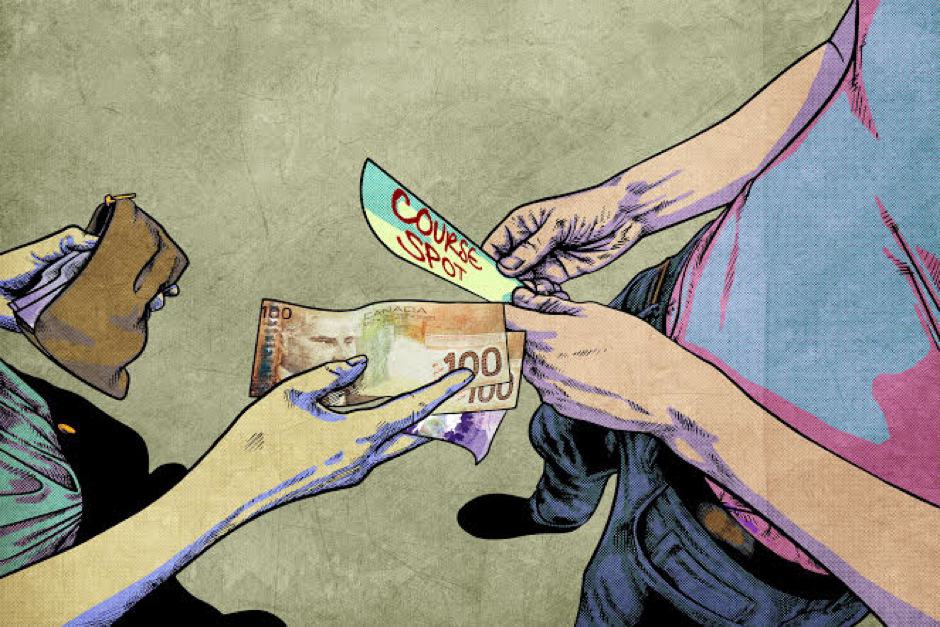If you’re looking to make a quick buck at U of T, be sure to sign-up for classes early.
As the start of the fall semester approaches, some U of T students are continuing the practice of offering cash in exchange for spots in courses.
In September 2013, a Toronto Star investigation revealed that some U of T students were offering as much as $100 for a spot in a full year course.
Some students who have been waitlisted for a course that they need turn to social media in hopes of enticing another student to drop the course in exchange for another course.
According to university registrar and executive director, enrolment services Richard Levin, few students actually engage in selling and trading course spots.
A scan of traditional buy-and-sell websites such and Kjiji, Craigslist, and various social media networks confirmed Levin’s statement.
However, some students resort to more private circles such as Facebook groups and mass e-mails to conduct exchanges out of sight from school administration.
It remains unclear how frequently money passes hands for course enrolment purposes, though there is no consolidated marketplace for this activity to occur.
Arts & Science Students’ Union (ASSU) executive, Abdullah Shihipar, expressed opposition to creating an institutionalized course exchange. “ASSU does not condone such an exchange of courses, particularly if the exchange of money is involved,” he said.
Shihipar said that although buying and selling spots in courses is uncommon, he is aware of students agreeing to swap courses as a favour, in which no money passes hands.
“Usually, students do this for free to support one another,” Shihipar said, adding that the motivation to exchange is often out of necessity to fulfill course requirements.
“This does not just apply to elective courses; some students even find themselves locked out of courses that they require for their degree and that are in their program as well,” he added.
Levin said the university was aware that once the waitlist period ends, the current enrolment system does allow course exchanges to occur.
“In some divisions, there is a brief period, normally a week before the last day to add courses, in which the waitlists are dropped, and courses are open to further registration. This is a relatively narrow window, but it does permit students to exchange course spaces,” Levin said.
According to Shihipar, the underlying issue behind the exchange of courses is that students find themselves unable to take their required courses because of the university’s course capacities and limited offerings.
“[ASSU] believes that students should have access to a quality education that is financially accessible. Students continue to pay high tuition fees, therefore they should have access to all the courses they want to take,” said Shihipar.
Levin said the university is currently investigating improvements to the course enrollment system, but warned against making changes too quickly.
“The university is currently looking into process and technical solutions to improve the enrollment management systems. Diligence is required to ensure that a solution does not introduce new unintended problems, and that any solution is an effective and responsible use of resources,” he said.
The last day to add fall semester courses on ROSI is September 21.


